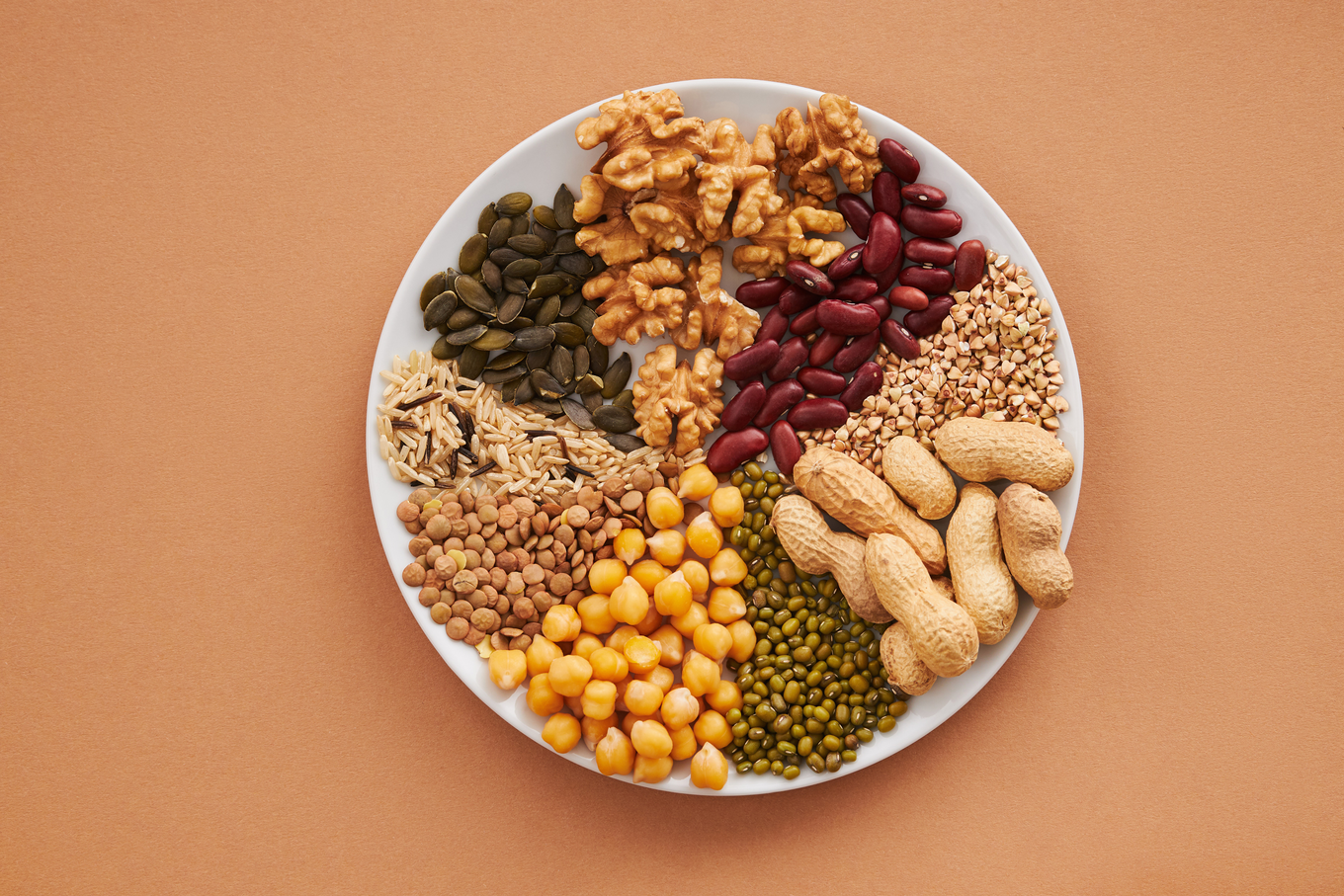A research initiative recently published in the British Journal of Nutrition examined the potential advantages of incorporating foods containing peas and fava beans into diets. The results? This dietary shift to plant-based protein not only maintains essential amino acid intake but also has no adverse impact on bone metabolism.
Led by Docent Suvi Itkonen from the University of Helsinki’s Faculty of Agriculture and Forestry, the study underscores the significance of reducing the consumption of red and processed meat in alignment with the Planetary Health Diet. This eating pattern emphasizes a plant-forward diet that includes whole grains, fruits, vegetables, nuts, and legumes.
Simultaneously, the study endorses the increase in the consumption of legumes, such as peas and fava beans, as a nutritionally safe approach.
 Adobe
Adobe
“Decreasing the consumption of red and processed meat in the diet to the upper limit of the Planetary Health Diet while increasing the consumption of legumes cultivated in Finland, such as peas and fava beans, is safe from the perspective of protein nutrition,” Itkonen said in a statement.
“Similarly, bone health is not compromised by such a dietary change either,” Itkonen said.
Beans as a source of protein
The study, called the BeanMan study, engaged 102 Finnish men in a diet intervention that spanned six weeks. One group followed a regimen incorporating 760 grams of red and processed meat weekly, equating to 25 percent of their total protein intake and representative of the average Finnish male’s protein consumption.
Conversely, the second group embraced a diet centered around legume-based food items, primarily peas and fava beans. These legumes constituted 20 percent of their overall protein intake, with red and processed meat limited to the upper threshold defined by the Planetary Health Diet (200 grams or 5 percent of total protein intake).
 Sveta Zarzamora
Sveta Zarzamora
During the study period, participants were restricted from consuming other red or processed meats or legumes not provided through the research project.
The outcomes of the investigation unveiled no notable disparities in bone formation or resorption markers between the two dietary groups. Notably, calcium and vitamin D intake remained consistent across both groups, aligning closely with prevailing dietary recommendations. Essential amino acid and protein consumption met the recommended levels in both the meat-focused and legume-focused diets.
With such results, Itkonen underscores the wider ramifications of curbing red meat consumption for the environment.
“Reducing red meat consumption is extremely important in terms of environmental impact,” Itkonen said.
The study’s revelations coincide with the growing popularity of plant-based diets for the environment, health, and animals. Like other countries’ nutritional recommendations, the updated Nordic Nutrition Recommendations also advocate for reduced meat and dairy consumption.
While the BeanMan study has already brought to light the promising implications of legume-centric diets, future reports will delve into the study’s broader findings concerning lipid metabolism, gut health, and nutrient intake.
Health benefits of beans
While this particular study focused on the positive effect of beans on bone health and protein intake, other research has recently uncovered additional health benefits of beans.
A study published in the scientific Food Research International found that pinto and black beans have anti-inflammatory and antioxidant benefits, respectively, and can contribute to improved skin health.
 Vanessa Loring/Pexels
Vanessa Loring/Pexels
Another study published earlier this year in the scientific publication The Journal of Nutrition found that the peptides in fava beans perform better than milk protein in muscle conditioning.
Beans also aid in weight loss, as evidenced by a 2022 study showing that replacing higher calorie meat with potatoes and beans could promote weight loss.
Experts have also long found that a diet rich in beans and other legumes is a common thread among communities in the “blue zones” regions around the world—where people live remarkably long lives.
“Beans are an amazing food and they are closely related to longevity in those who eat them regularly,” Anna Herby, DHSc, RD, CDE Nutrition Education Specialist for the Physicians Committee for Responsible Medicine (PCRM), previously told VegNews.
“They provide all kinds of benefits, from better blood sugar control, lowering cholesterol levels, to improving gut bacteria balance,” Herby explained.
JUMP TO ... Latest News | Recipes | Guides | Health | Subscribe









